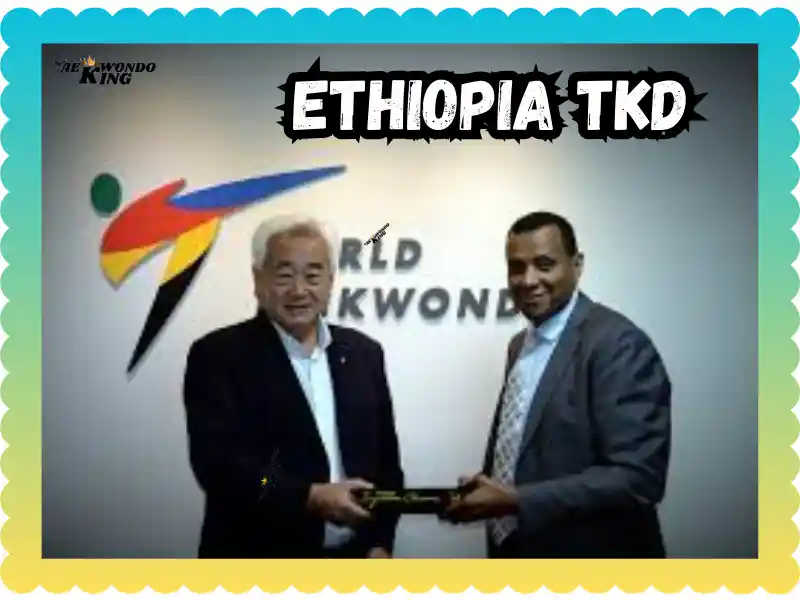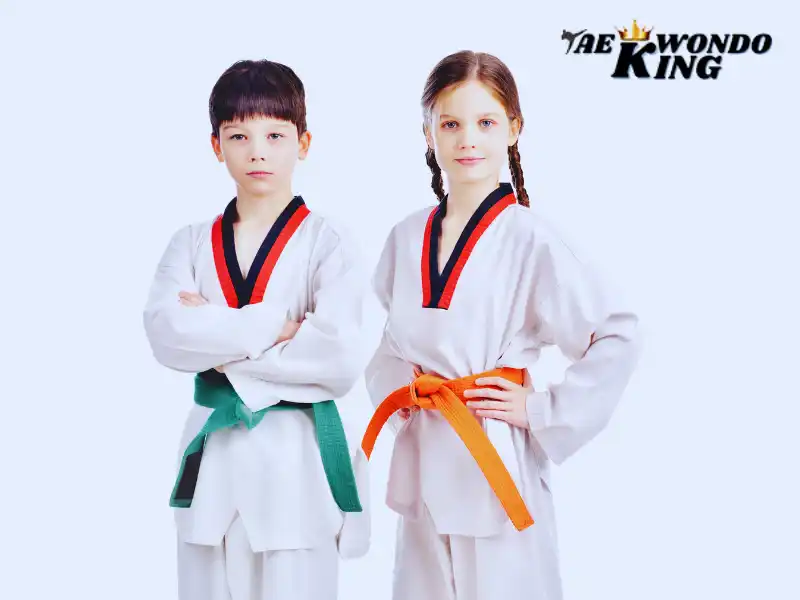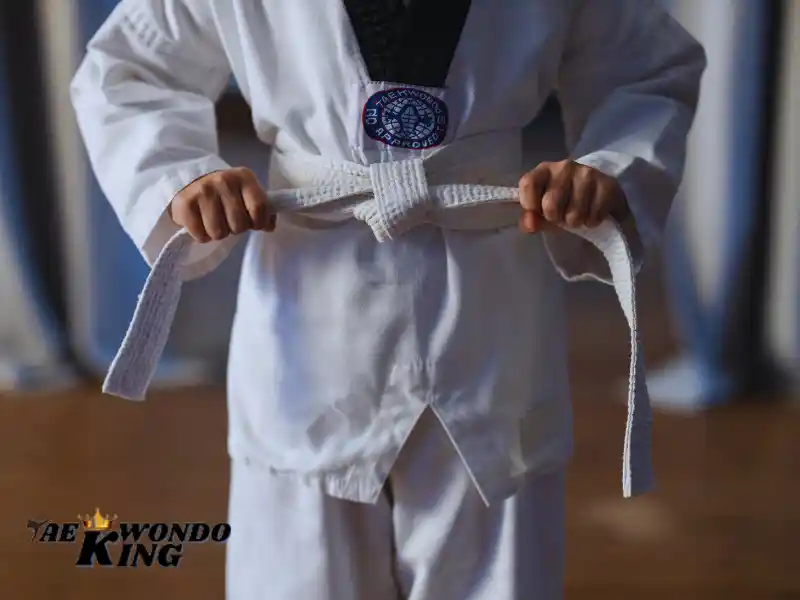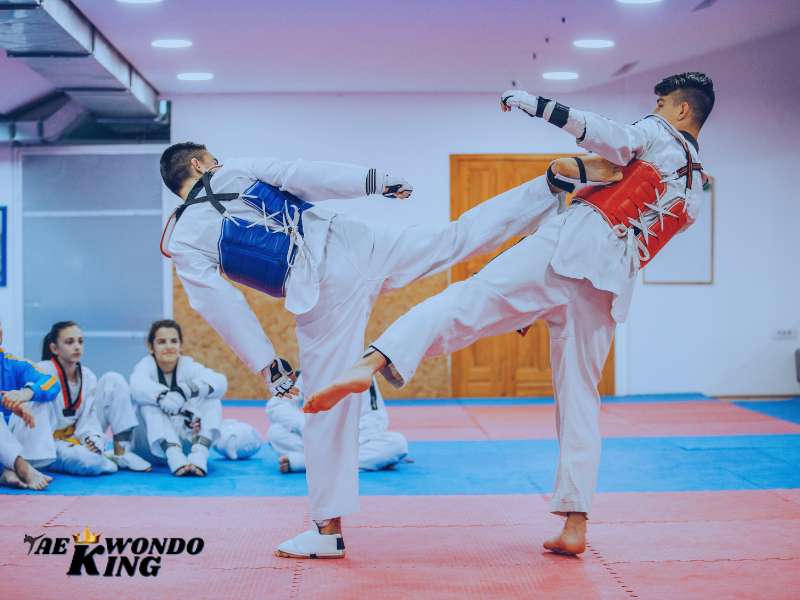
If you’ve ever watched a match from Ethiopia TKD, you know there’s something special in their rhythm and power. I still remember the first time I saw an Ethiopian athlete deliver a flawless spinning kick, it gave me goosebumps. Having coached and competed internationally, I’ve seen how Ethiopia’s Taekwondo scene is rising with grit and grace.
Get updates by joining the TaekwondoKing official WhatsApp channel.
In this piece, I’ll share why their approach stands out, what we can learn from it, and how it’s shaping the future of the sport. Let’s start it, you might find a new spark for your own training.
See the latest Gaiam vs Liforme Yoga Mat price on Amazon today.

The Rise of Ethiopia TKD
Taekwondo was introduced to Ethiopia in the late 20th century. Initially, only a few practitioners were involved. Over time, its appeal grew.
The martial arts offered more than self-defense. It emphasized discipline, respect, and mental strength. These values resonated with Ethiopian culture.
Today, Ethiopia Taekwondo is flourishing. Schools and clubs have opened nationwide. Many young athletes are training rigorously.
This article explores the evolution, growth, and significance of Ethiopia TKD. It highlights its role in sports and society.
Why Taekwondo Attracts Ethiopians
Ethiopia has a rich history of sports and cultural traditions. In recent years, Ethiopia TKD has emerged as a dynamic force. Taekwondo is gaining popularity in the country, uniting communities through discipline and skill.
Taekwondo promotes discipline and fitness. It offers self-defense skills. Success in global events inspires many.
1. Physical Fitness
Taekwondo is an excellent workout. It builds strength, flexibility, and endurance.
2. Mental Discipline
Practitioners learn to focus and resilient. These skills help in life beyond the mat.
3. Cultural Connection
The values of Taekwondo align with Ethiopian traditions. Respect and community are central themes.
4. International Recognition
Ethiopia TKD opens doors to global competitions. Athletes can represent their country on the world stage.
Key Figures in Ethiopia TKD
Several individuals have shaped Etheopia TKD. Coaches, athletes, and officials have worked tirelessly. Their efforts have elevated the sport’s status.
Prominent figures include national champions and international medalists. They inspire the next generation of practitioners.
Training Centers for Ethiopia TKD
Major cities have dojangs and clubs. Addis Ababa has top academies. Some schools offer programs for youth.
1. Addis Ababa Taekwondo Academy
Located in the capital, it’s a hub for aspiring athletes. The academy provides top-tier coaching.
2. Regional Training Clubs
Many cities have local clubs. They cater to beginners and advanced practitioners.
3. University Programs
Some universities in Ethiopia now offer Taekwondo programs. These initiatives promote education and sport.
See the latest Gaiam vs Liforme Yoga Mat price on Amazon today.

Ethiopia TKD in Competitions
Ethiopian athletes compete in various events. Local tournaments provide a platform for skill development. International competitions showcase Ethiopia’s talent.
Achievements
- Ethiopian athletes have won medals at the African Taekwondo Championships.
- They have also participated in the World Taekwondo Championships.
Challenges for Ethiopia TKD
Limited equipment affects training. Lack of funding slows growth. Few international events reduce exposure.
1. Limited Resources
Equipment and facilities are often scarce. Clubs rely on donations or personal investments.
2. Lack of Awareness
Many Ethiopians are still unfamiliar with Taekwondo. Efforts are needed to promote the sport.
3. Funding Issues
Financial support for athletes is minimal. This limits their ability to train and compete.
4. Coaching Shortages
Ethiopia TKD needs more certified instructors. Quality coaching is vital for growth.
Solutions to Overcome Challenges
Sponsorships can help fund athletes. More dojangs will increase access. International support can improve training.
1. Government Support
Increased funding can improve facilities. National programs can encourage participation.
2. International Partnerships
Collaborations with global organizations can bring resources. Training exchanges can benefit athletes and coaches.
3. Community Outreach
Promoting Ethiopia TKD through schools and media is crucial. Awareness campaigns can attract new practitioners.
4. Scholarships for Athletes
Financial aid can help talented individuals pursue Taekwondo full-time. This ensures their progress and dedication.
Etheopia TKD and Youth Development
Taekwondo plays a vital role in youth development. It keeps young people active and engaged. The sport teaches valuable life skills.
Positive Impacts
- Self-Discipline: Helps students focus on education.
- Teamwork: Encourages collaboration and respect.
- Leadership Skills: Prepares individuals for future challenges.
Etheopia TKD is more than a sport. It’s a tool for social change.
Ethiopia TKD on the International Stage
Ethiopian athletes are gaining recognition globally. They represent the country in prestigious events.
World Taekwondo Federation (WTF)
Ethiopia is a member of the WTF. This affiliation boosts the country’s presence in international competitions.
Olympic Dreams
Ethiopia aims to send athletes to the Olympics. Participation would elevate Ethiopia TKD to new heights.
Role of Coaches in Etheopia TKD
Coaches are the backbone of Etheopia TKD. They train athletes and nurture talent. Their dedication ensures the sport’s future.
Responsibilities
- Teach techniques and strategies.
- Instill discipline and respect.
- Motivate athletes to excel.
Coaches are mentors and role models. Their influence extends beyond the mat.
See the latest Gaiam vs Liforme Yoga Mat price on Amazon today.

Popular Taekwondo Techniques in Etheopia TKD
1. Kicks
Kicking techniques are a hallmark of Taekwondo. Ethiopians excel in speed and precision.
2. Poomsae
Poomsae, or forms, showcase grace and technique. They are an essential part of Ethiopia TKD training.
3. Sparring
Sparring develops real-world application. It’s a favorite among Ethiopian athletes.
Promoting Ethiopia TKD Globally
Ethiopia TKD has the potential to shine internationally. Effective marketing and partnerships are key.
Strategies
- Social Media Campaigns: Share achievements and stories online.
- Hosting Events: Organize regional and international tournaments.
- Collaborations: Work with other countries to exchange knowledge.
Conclusion
Ethiopia TKD is more than a sport. It’s a growing movement that unites people. Through hard work and perseverance, it continues to thrive.
With the right support, Ethiopia TKD can reach new heights. Its athletes, coaches, and enthusiasts are paving the way for a bright future. By embracing challenges and celebrating achievements, Etheopia TKD will leave a lasting legacy.
FAQs
World Taekwondo ranks change often, but South Korean athletes often hold top spots. Check the latest rankings to see who’s currently #1. Learn more about top fighters.
South Korea leads in Taekwondo. China excels in Kung Fu. The U.S. dominates MMA. Each country has its strengths. Learn more about global rankings.
South Korea is the best for Taekwondo. It’s the birthplace of the sport and leads in training and talent. Learn more about training in Korea.
General Choi Hong Hi is considered the father of Taekwondo for founding and promoting it worldwide. Learn more about his legacy.
It changed from WTF to World Taekwondo to avoid confusion with internet slang. Learn more about the rebranding story.
South Korea is the main country of Taekwondo. It was developed there and remains its global hub. Learn more about its origins.
South Korea’s national team is widely seen as the best in Taekwondo. They consistently win Olympic and world medals. Learn more about elite teams.
Jungkook of BTS holds a black belt in Taekwondo and is known for his skill. Learn more about BTS and martial arts.
Taekwondo is from Korea, not Japan. It was developed in the 1940s with roots in Korean and Chinese martial arts. Learn more about its history
See the latest Gaiam vs Liforme Yoga Mat price on Amazon today.


Founder, Owner, and CEO of TaekwondoKing.
He is one of the top 100 martial artists in the World and among the top 20 referees in Bangladesh.
Ehatasamul Alom is an esteemed Kukkiwon Certified Taekwondo 3rd Dan Black Belt with over 15 years of experience in this dynamic martial art. Born in Rajshahi, Bangladesh, Ehatasamul’s journey with Taekwondo began at the tender age of seven. His passion led him to compete at national and international levels, where he has bagged numerous awards and honors. He is also a member of the Taekwondo National Referee Panel.
With a Bachelor’s degree in Sports Science from the prestigious Rajshahi University, Ehatasamul has a deep understanding of the technical and scientific aspects of martial arts and some other martial arts.
In 2022, Ehatasamul created the “TaekwondoKing.com” to share his knowledge, Free Resources, Values, and Real experiences. His articles focus on Taekwondo training techniques, competition strategies, Sport Products Reviews, and the art’s rich history and philosophy. He also writes about the importance of mental fortitude and discipline, key aspects of his teaching philosophy. He has already launched many sports, Taekwondo, and health-related Free online tools. His goal is to inspire both beginners and seasoned practitioners worldwide through insightful and engaging content.
If you need any help, contact Ehatasamul Alom at any time.




